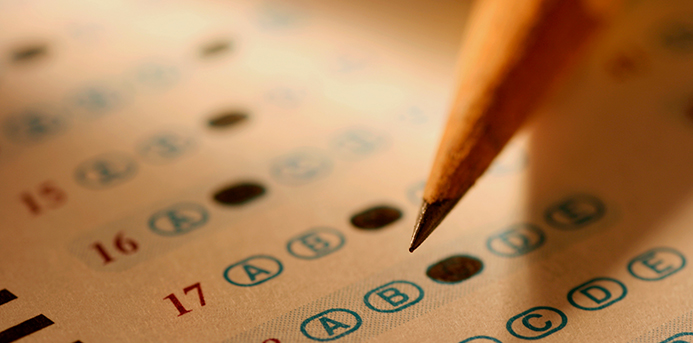One student is taking a picture of a test on his iPhone to send to his buddy in the next class, another is handing in an essay he downloaded from the Internet, meanwhile another dozen students are sharing a classmate’s lab.
We have to face a simple fact about students today: as technology has evolved to provide a vast wealth of information anytime, anywhere, cheating has never been easier. Here are five ways to prevent your teenagers from cheating.
1. Check your children’s homework every night. I know this advice sounds a little intense and age inappropriate for high school children, but how else can parents truly know what their teenagers are doing at school and what they are actually learning?
2. Create a device-free zone at least one hour a day for studying. One hour without connections to cyberspace or to their friends is an hour of studying and learning devoid of cheating. It’s a great opportunity to improve concentration skills without distractions, so necessary to achieve well on standardized tests like the SAT and to be better prepared for the demands of the workplace.
3. Give your children practice tests before exams. If you know what they are studying, then you can determine whether they are truly engaged in the learning process. If their materials are sparse and generated from websites, then you know they are either cheating or performing poorly.
4. Talk directly to your teenagers about cheating. I do believe that most teenagers buy the argument that cheating will only get them so far. Therefore, frank discussions about copying homework, cutting and pasting Internet material, and grabbing test answers from friends can curb cheating. Ultimately, our children must be able to answer the question: “What knowledge and skills will you have after you’re done cheating away your high school years?”
5. Point toward the future. Students need to hear from parents what awaits them in the workplace. Bosses want workers who have the confidence and independence to take on challenges and show initiative; what value are cheaters who know their success has been predicated on fraud all these years? In other words, cheaters are worthless commodities in the workplace, and, the faster students realize this fact, the sooner they will return to hitting the books.
 Dr. Michael Hartnett has been a high school English teacher, college professor, and SAT instructor/tutor for more than 20 years, He is the author of The Great SAT Swindle: A novel featuring more than 1500 vocabulary words in a tale of deception & punishment. For more information, please visit www.MichaelHartnett.net
Dr. Michael Hartnett has been a high school English teacher, college professor, and SAT instructor/tutor for more than 20 years, He is the author of The Great SAT Swindle: A novel featuring more than 1500 vocabulary words in a tale of deception & punishment. For more information, please visit www.MichaelHartnett.net
The Great SAT Swindle can be purchased from www.amazon.com, barnesandnoble.com and through all major booksellers.

